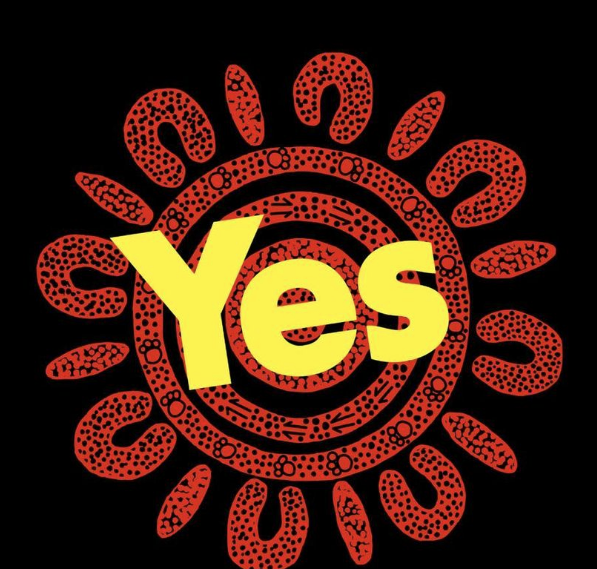At its heart, the proposal to enshrine in the Constitution an Indigenous Voice to parliament is about a desire to improve Indigenous outcomes. So it is concerning to hear David Littleproud, the leader of the Nationals, say that “the Voice will not advance the primary aim of Closing the Gap and dealing with the real issues faced by Aboriginal and Torres Strait Islander people”.
Others even argue that the Voice to parliament gives rights to Indigenous Australians not enjoyed by other Australians. They go so far as to suggest that a Voice to parliament is a racist idea.
An Indigenous Voice will enable Aboriginal and Torres Strait Islander people to provide advice on policies and projects that impact their lives. What we are currently witnessing in Alice Springs is a direct result of government decisions taken without reference to or in consultation with Indigenous people.
In 2022, the Stronger Futures agreement between the Commonwealth and Northern Territory governments ended. The agreement had created a regime of alcohol restrictions for the duration of the agreement. Key Aboriginal community leaders and experts warned of the need for urgent action to address the end of these restrictions. They feared a rise in crime and a decrease in community safety.
Neither the Northern Territory nor federal government appeared to heed these warnings. Not all local leaders support alcohol restrictions. Yet a year later the town is in crisis and politicians are scrambling to undo their failure to act.
There is more to the crisis in Alice Springs than alcohol supply. It is also important to improve access to domestic violence services, address poverty and improve educational outcomes. However, to see change we need to engage with the voices of Aboriginal people on the ground.
Australian governments pass numerous pieces of legislation that directly affects Indigenous Australia – including in relation to land rights, protecting (or not) Indigenous culture, and the delivery of services.
Indigenous people have a fundamental and direct interest in ensuring government hears their views because they live with and bear the brunt of every decision.
Just like all other Australians, Indigenous Australians have a right to advise governments on matters that impact on their lives.
Non-Indigenous Australians have organisations that represent their views to government on all aspects of their life, including work, business and culture. Business groups such as the Business Council of Australia and Australian Industry Group, professional associations, trade unions and arts bodies represent a huge range of interests of the Australian community. Many well-funded organisations also have permanent lobbyists who have the ear of governments.
Some of these bodies fund themselves. Others have government support. Indigenous communities don’t have the financial resources to fund lobbyists. They sometimes require government assistance.
The proposal to create an Indigenous Voice to parliament simply strengthens the right of Indigenous Australians to be heard and consulted. Their views are not binding on governments. The Voice simply provides advice in much the same way as many other non-Indigenous organisations such as the Business Council of Australia.
The Voice does not give Indigenous Australians rights that other Australians do not have. It is not a racist proposal.
On the other hand, Australia has a long history of racism towards Indigenous people, in part due to two “race clauses” in our original Constitution. While these clauses were repealed in the 1960s, future governments may decide to use their constitutional power to pass laws that again restrict Indigenous rights.
The proposal for a referendum to enshrine the voice to parliament is not just a gesture of reconciliation, it is a key protection against a return to a racist future.
Our original constitution had one clause that stated that Aboriginal people could not be counted in the Australian census. The second stated that the Commonwealth of Australia could not pass legislation that concerned Aboriginal people.
This constitutional framework – taken together with various laws passed by Commonwealth and state governments – created a legal framework that allowed racism towards Indigenous people.
From the 1960s the racist laws were gradually repealed. Then, in 1967, an overwhelming majority of Australians voted to repeal the race clauses in the Constitution.
These welcome reforms allowed Australian governments to pass laws for Indigenous Australians. However, there was nothing to state that the laws must benefit Indigenous Australians. On the contrary, Australian governments can still pass laws that cause harm. Furthermore, Australian governments are not required to consult or consider Indigenous perspectives.
As a palawa, Indigenous, doctor, I have spent most of my professional life in pursuit of better policies in Indigenous affairs. In my experience better outcomes result when we engage with Indigenous voices.
I will vote Yes for the Voice referendum along with, according to recent polls, 80 per cent of Indigenous Australia.
Having an Indigenous Voice to parliament is not racist. It doesn’t elevate the views or rights of Indigenous people above anyone else. It simply supports the rights of Indigenous people to have a level of representation that other Australians take for granted. It will strengthen Australian democracy and government accountability.
First published in The Age on 5 February 2023
